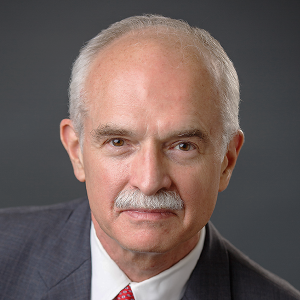With the economy still floundering and nearly one in 10 Americans out of work, it’s time for the Obama administration to discard the ideological fiction that a wise and benevolent government can fix things. Being in power doesn’t necessarily mean you understand problems or have solutions. The White House is striking out on both counts.
Nowhere was this more evident than at “The Presidential Summit on Entrepreneurship” last spring.
Summit spokesman Bert Rhodes, a deputy national security adviser and former White House speechwriter, set the proper tone, noting that “entrepreneurship is a fundamental American value, and it’s also a force that has the ability to unlock opportunity for people around the world.”
Rhodes said the summit was intended not to showcase government officials, but to “bring together entrepreneurs—social entrepreneurs—around this question of how we can galvanize entrepreneurship on behalf of economic growth.”
Then the Parade of government officials began, including the secretary of Commerce, administrator of the Small Business Administration, director of the White House Office of Social Innovation and Civic Participation, senior director for “global engagement” of the White House national security staff and others, with closing remarks by Secretary of State Hillary Clinton.
It was a classic example of “know-it-all” big government at its worst.
Innovators Needed
This should have come as no surprise. By now, it should be clear to most Americans—especially the “doers” who create jobs for others—the White House is no fan of free enterprise.
In March, President Obama tipped his hand, excoriating the U.S. business community as a “corporate culture rife with inside dealing; questionable accounting practices and short-term greed.” The real problem in America, according to the president, “is not that someone who doesn’t look like you might take your job; it’s that the corporation you work for will ship it overseas for nothing more than a profit.”
White house policies reflect this belief that business is self-centered and evil and government all-knowing and good.
The trouble is: such attitudes and policies smother entrepreneurship, innovation and job creation, exactly what the U.S. economy so desperately needs, especially now.
Contrary to President Obama’s view, the crucial factor for improving life in every society has been private enterprise, individuals who seek to uplift their lives and those of others. Entrepreneurship is neither created nor nurtured by government, nor reserved to the privileged; it springs from individuals and can be found even in the poorest communities in countries worldwide.
The White House economic team should be required to read Lessons from the Poor: Triumph of the Entrepreneurial Spirit. In this book, Alvaro Vargas Llosa shows how countless millions of small-scale entrepreneurs In Africa, Asia and Latin America have created a vast range of products and services, not because of government, but despite the enormous burden imposed by government bureaucracies and corruption.
Human Progress
Entrepreneurship can only be fully beneficial to society when people are free to channel their efforts into voluntary and cooperative ventures that create wealth. Where governments dominate society, enterprising individuals typically are stifled. Their talents and energies are misdirected into political patronage.
Instead of building competitive businesses they seek government favors—tariffs, subsidies and regulations—to impede others and raise costs for consumers. All of this serves to inhibit, misdirect and destroy wealth and job creation.
While the Obama White House may see greed in free market entrepreneurial activity, it fails to recognize that all entrepreneurial creations are not motivated by financial considerations.
This is why entrepreneurship guru Peter Drucker ranked the Salvation Army among the most entrepreneurial organizations in America. “No one even comes close to it with respect to clarity of mission, ability to innovate, measurable results, dedication and putting and putting money to maximum use,” he says.
In their book, The Voluntary City: Choice, Community, and Civil Society, David Beito, Peter Gordon and Alexander Tabarrok demonstrate that private business and social entrepreneurs, not government command-and-control, is what makes human progress possible.
This is another book the president and his staff should take on their next vacation, instead of their golf clubs. They might learn something and put an end to their destructive big-government policies.







